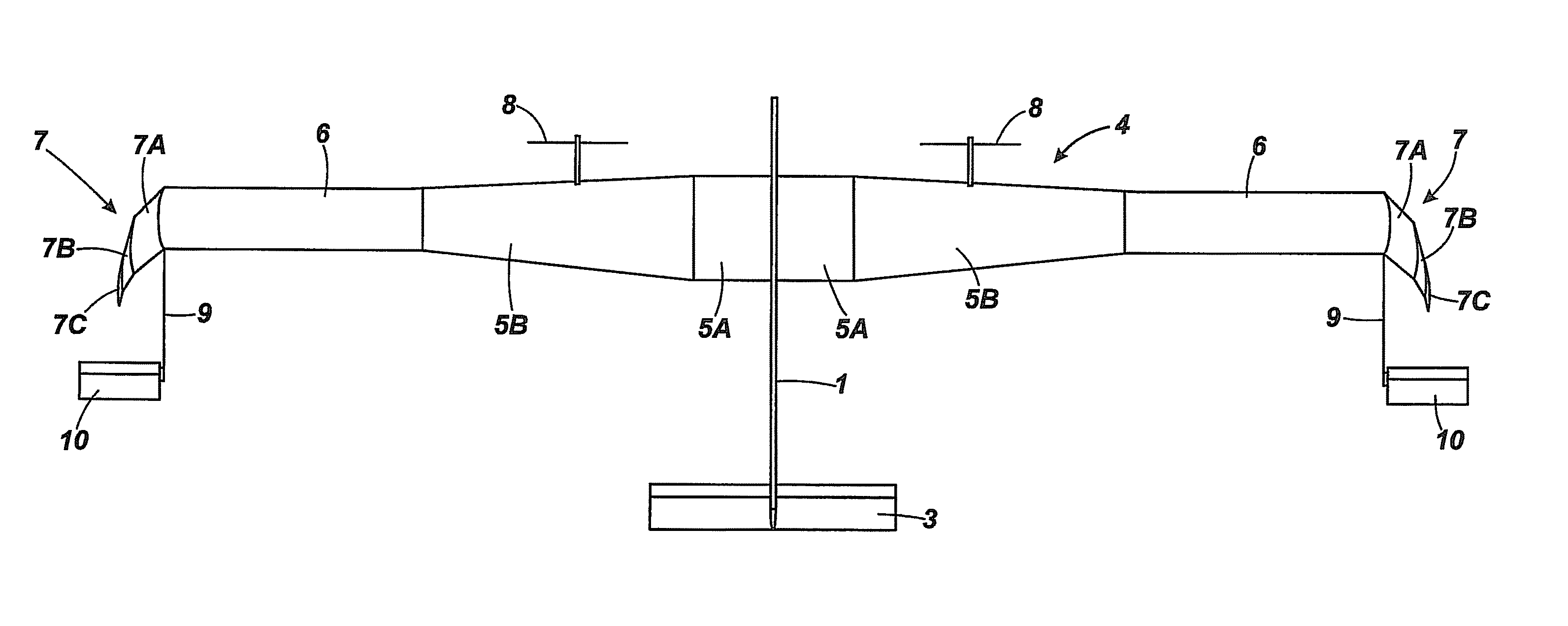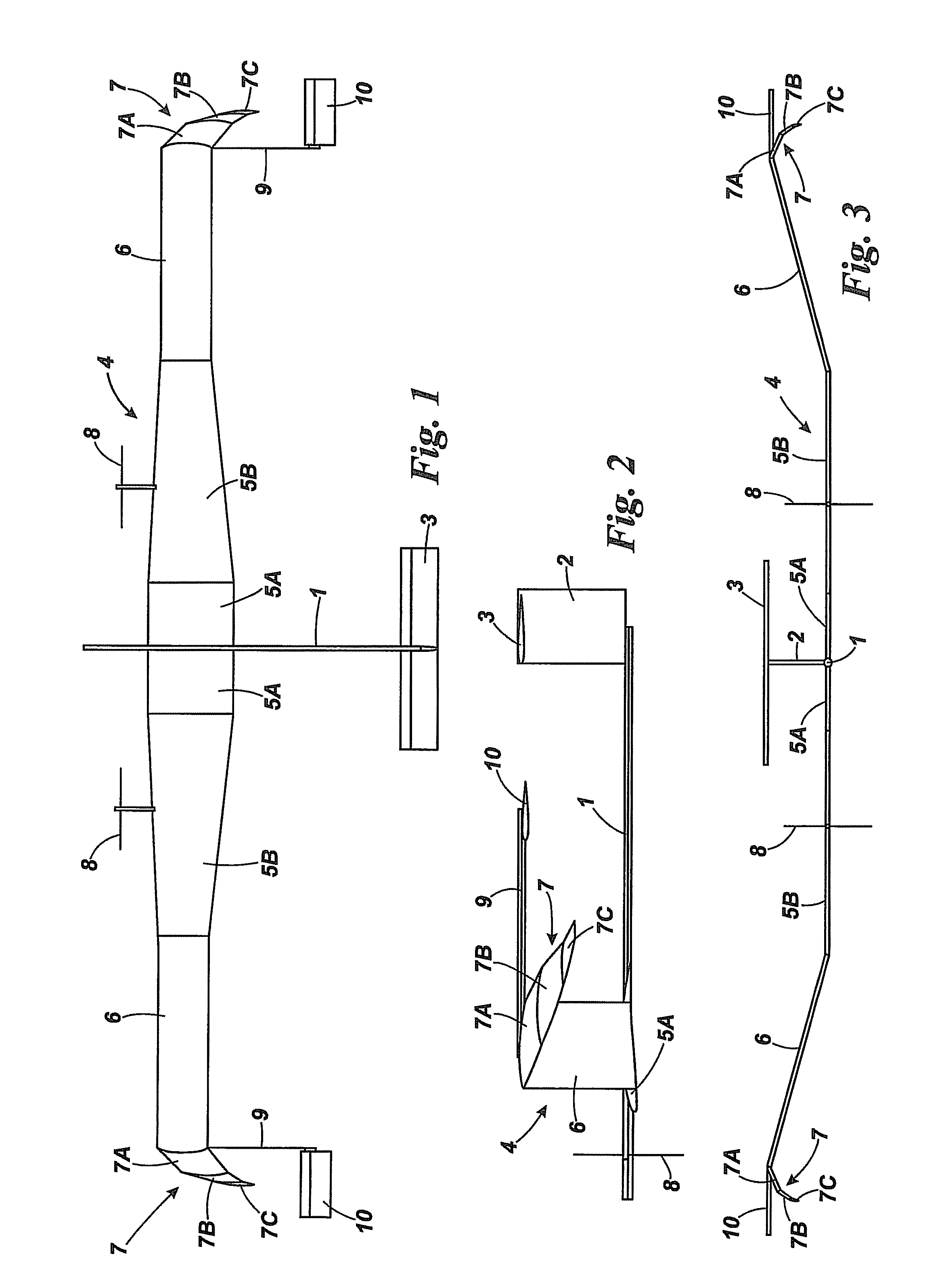Aircraft
a technology for aircraft and wings, applied in the field of aircraft, can solve the problems of significant structural mass and downward twisting of the outer part of the wing, and achieve the effect of reducing the mass of the main plane, increasing the operating speed, size and mass of any conventional central tail plan
- Summary
- Abstract
- Description
- Claims
- Application Information
AI Technical Summary
Benefits of technology
Problems solved by technology
Method used
Image
Examples
Embodiment Construction
[0011]The aircraft of FIGS. 1 to 3 is a high altitude, long endurance, solar powered UAV. It comprises a tubular fuselage 1 with a tail fin 2 carrying a tailplane 3, and a mainplane 4. Each wing of the mainplane has an inboard portion 5A, 5B, outboard portion 6 and tip 7, as will be described more fully hereinafter. Substantially the whole of the upper surface of each wing portion 5A, 5B and 6 is covered with arrays of photovoltaic cells (not separately shown), or such cells may be housed within the mainplane structure beneath a transparent upper skin. Its powerplant comprises a pair of wing-mounted brushless DC electric motors (not seen) each driving a respective propeller 8, although other embodiments may comprise a different number of such powerplant depending on the size of airframe and motor rating. Housed within the mainplane structure are a plurality of rechargeable lithium ion batteries or regenerative fuel cells.
[0012]In use the UAV will be flown to a desired stratospheric ...
PUM
 Login to View More
Login to View More Abstract
Description
Claims
Application Information
 Login to View More
Login to View More - R&D
- Intellectual Property
- Life Sciences
- Materials
- Tech Scout
- Unparalleled Data Quality
- Higher Quality Content
- 60% Fewer Hallucinations
Browse by: Latest US Patents, China's latest patents, Technical Efficacy Thesaurus, Application Domain, Technology Topic, Popular Technical Reports.
© 2025 PatSnap. All rights reserved.Legal|Privacy policy|Modern Slavery Act Transparency Statement|Sitemap|About US| Contact US: help@patsnap.com


